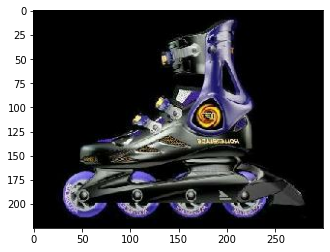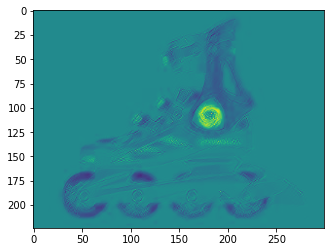How to use 2D convolution layer in TensorFlow | tf.keras
The convolution layer uses filters that perform convolution operations as it is
scanning the input I with respect to its dimensions. Lets understand working of 2D convolution layer
with an example. 2D convolution layer can be used from tf.keras.layers api.
Use Colab notebook for executing code snippets.
In this post we will touch following TensorFlow modules and functions.
tensorflow-datasetsfor loading the image dataset-
tf.expand_dimsandtf.dtypes.castfor changing image dimensions and dtype -
tf.keras.layers.Conv2Dfor using the 2D convolution layer -
plt.imshowfor displaying the image
Load caltech101 dataset with tensorflow datasets
import tensorflow as tf
import tensorflow_datasets as tfds
import matplotlib.pyplot as plt
ds, dsinfo = tfds.load('caltech101', split='train', with_info=True)
Visualize one input image from the dataset
for example in list(ds)[2:3]:
image, label = example['image'], example['label']
print(image.shape)
print(label)
plt.imshow(image)
Example Output:
(225, 300, 3)
tf.Tensor(51, shape=(), dtype=int64)

Change image shape and dtype to make it compatible with
tf.keras.layers.Conv2D
image = tf.expand_dims(image, 0)
image = tf.dtypes.cast(image, tf.float32)
print(image.shape)
Example Output:
(1, 225, 300, 3)
Create 2D conv layer with tf.keras.layers and provide input image
Number of feature maps generated with 2D convolution layer depends on integer value provided to the
filter argument in the layer, in this example we have filter=5,
hence 5 feature maps would be generated.
Shape of feature map is controlled with stride argument provided in the layer, in this example
we have stride =(1,1) , so shape of feature map would be same as of provided input image,
in case we choose stride =(2,2) then shape of feature map would be half of the size of provided input.
x = tf.keras.layers.Conv2D(filters=5, kernel_size=(2,2), strides=(1,1))(image)
print(x.shape)
Example Output:
(1, 224, 299, 5) # notice change in last dimension as it got changed from 3 to 5 because of filter argument
Visualize feature maps generated by 2D convolution layer
Filter value provided totf.keras.layers.Conv2D is 5, all the feature maps can be viewed with following code
plt.imshow(x[0, :, :, 0]),
plt.imshow(x[0, :, :, 1]),
plt.imshow(x[0, :, :, 2]) ,
plt.imshow(x[0, :, :, 3]),
plt.imshow(x[0, :, :, 4]) . Below is the example output for first feature map.

Category: TensorFlow
